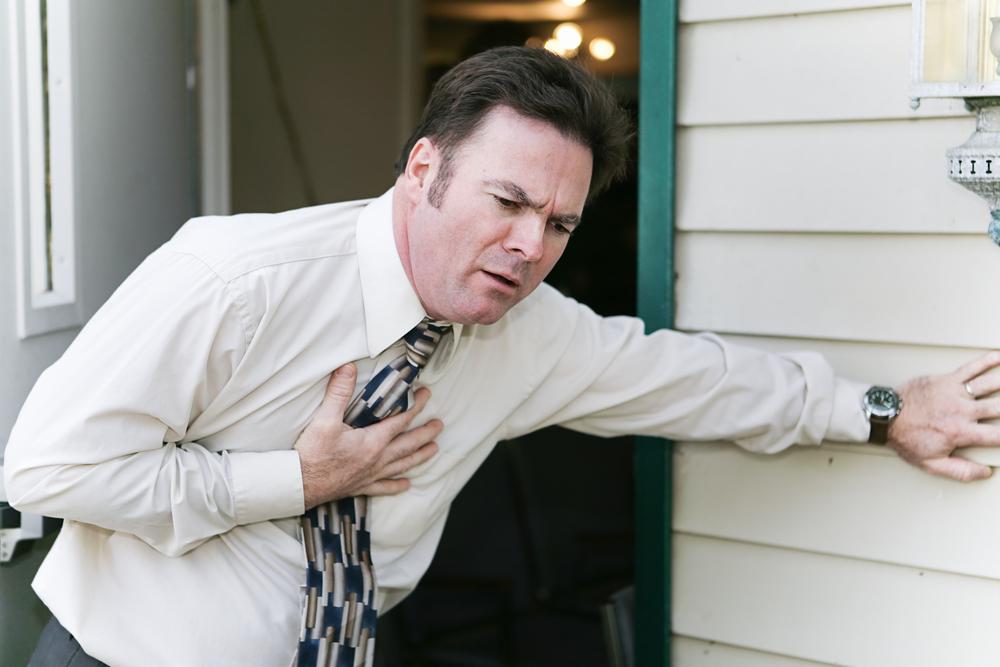Here are Some Congestive Heart Failure Treatment Options
Heart failure is also known as congestive heart failure (CHF). It arises if your heart is incapable to pump in an effective way to sustain blood flow in the arteries of the body. CHF points out to the phase wherein fluid builds up around the heart. This causes inefficient pumping. CHF can be life-threatening. Before we look into congestive heart failure treatment let us look at its symptoms and causes.

Symptoms Of CHF
Symptoms include leg swelling, shortness of breath, and tiredness.
Conditions Leading to Congestive Heart Failure
Edema is an abnormal accumulation of fluid in the cardiac tissues. It reduces the ability of your heart to pump and circulate blood to fulfill the needs of your body. The blood pressure inside the cardiac chambers rises. This causes extreme weariness, dyspnea on exertion, and other uncomfortable symptoms of CHF.
CHF occurs when there is decrease in the pumping ability of the heart. Pumping inefficiency raises the pressure inside the chambers of the heart. These high pressures are finally passed on back into the lungs and the rest of the body. This results in filling up the lungs with water and building up fluid in the body. This manifests in the symptoms of CHF. These symptoms are shortness of breath and swelling in the legs.
An Insight into Congestive Heart Failure
Approximately, 40 million people have CHF globally. Around 670,000 people have HF each year.
Common Causes of Congestive Heart Failure are:
- Disease in the arteries that surrounds and supplies to the heart
- High blood pressure
- Irregular and rapid heartbeat
- Damage or defect in one of the four heart valves
- Excessive alcohol use
- Infection
These either alter the structure or the functioning of the heart leading to HF. Human heart consists of 2 ventricles and 2 atria. The job of the ventricles is to pump blood to your organs and tissues. The atria on the other hand, receive blood from your body . CHF develops when enough blood is not pumped to your body by your ventricles.
Types of Congestive Heart Failure:
1) Left-sided heart failure occurs more often. It happens with the left ventricle failing to pump sufficient blood to your body. Accumulation of fluid takes place in your lungs. You will find difficulty in breathing. There are two kinds of left-sided HF:
- Systolic HF happens when the same ventricle does not contract as needed. The force that pushes blood into circulation decreases. In absence of this, the heart pumps less blood.
- Diastolic failure or dysfunction, occurs with inflexible muscle in the left ventricle. The muscles are not able to relax and less blood fills the heart between beats.
Right-sided HF is just the opposite and the problem lies with your right ventricle not being able to pump blood to your lungs. The blood vessels experience an excess of blood.. This causes fluid to go up in your abdomen, lower extremities, and other vital organs.
Causes of Congestive Heart Failure
CHF may result from obesity, smoking, regular alcohol intake and sedentary life and other diseases affecting your cardiovascular system. You should get periodic checkups of your blood pressure, coronary artery disease, and valve conditions.
High Blood Pressure:
A high blood pressure may lead to CHF. Fat and cholesterol constrain blood vessels resulting in hypertension.
Coronary Artery Disease:
Fatty substances like cholesterol obstruct the small blood delivering coronary arteries. These arteries have connections from your heart to other parts of your body. This constricts the arteries and impedes the blood flow and the artery gets damaged.
Valve Conditions:
The heart valves open and close to regulate the flow of blood through your heart. Incorrect opening and closing of valves make this process difficult. This can be due to an infection or a heart defect.
Congestive Heart Failure Treatment
The aim of congestive heart failure treatment is to have a normal heartbeat. Exact congestive heart failure treatment depends on the primary cause of HF. Doctors will try to cut down the fluid within your body for normal functioning of the heart.
The decrease in salt consumption will be beneficial. If applicable, take direct medications (water pills). Medications can make the heart pump better. It can boost cardiac output, and increase ejection fraction.
Medicines are angiotensin converting enzyme (ACE) inhibitors and angiotensin receptor blockers (ARBs). They enhance the survival. This reduces unfavorable conditions that affect cardiac performance. Beta blockers may regulate the heart rate and raise cardiac output and ejection fraction. Digoxin (Lanoxin) is an older medicine that helps increase cardiac output. It also helps to ease symptoms. A very mild newer diuretic, spironolactone, is used to treat HF. Patients with CHF (NYHA stage IV) require left ventricular assist devices (LVADs). This is an implanted pump that augments the heart’s ability to squeeze. Even patients may have to go in for heart transplantation. LVAD is generally recommended for elderly people.




